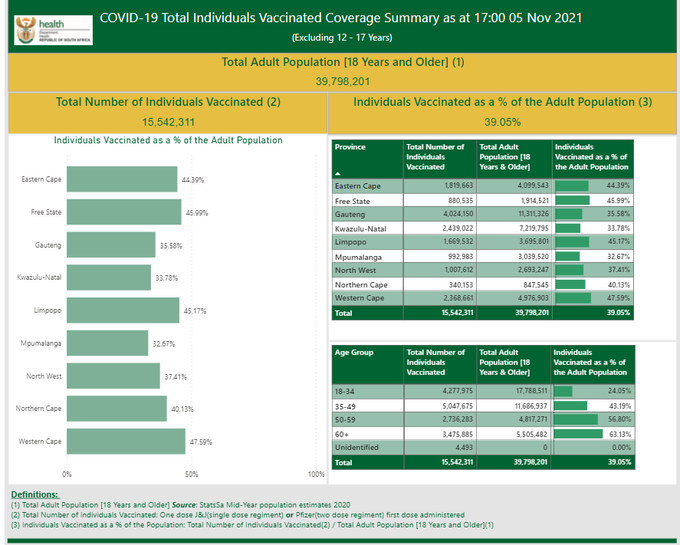
JUST IN [Thread] 1. There's an increase in the nr of #COVID19 cases and the proportion of tests coming out positive, says @nicd_sa.
WHERE? Gauteng, mostly in Tshwane
AGE GROUPS in Tshwane = most affected:
- 10-29 years (past week)
- 20-44 at a higher education institute
WHERE? Gauteng, mostly in Tshwane
AGE GROUPS in Tshwane = most affected:
- 10-29 years (past week)
- 20-44 at a higher education institute

2. Do the new cases signal the beginning of a fourth #COVID19 wave?
- We don't know yet, localised (in other words the cases are mostly only in Tshwane) increases in cases are expected
- We don't know yet, localised (in other words the cases are mostly only in Tshwane) increases in cases are expected

3. Is a new variant emerging?
- Genomic sequencing in SA shows no evidence of this. But it takes time to transport samples + analyse them, so the results we have go hand-in-hand with a bit of a delay, which means we're mostly looking @ results of samples of a few weeks ago.
- Genomic sequencing in SA shows no evidence of this. But it takes time to transport samples + analyse them, so the results we have go hand-in-hand with a bit of a delay, which means we're mostly looking @ results of samples of a few weeks ago.
4. What do we know about previous #COVID19 waves in SA?
They were all driven by a new variant:
Wave 1: Wuhan variant
Wave 2: Beta
Wave 3: Delta
For Wave 4, we simply don't yet know if there will be a new variant.
They were all driven by a new variant:
Wave 1: Wuhan variant
Wave 2: Beta
Wave 3: Delta
For Wave 4, we simply don't yet know if there will be a new variant.
5. What can you do to protect yourself?
1. Get vaccinated @ #COVID19. You can still get infected, but your chances of falling seriously ill = dramatically lower than those of unvaccinated people
2. Wear a mask, social distance, wash your hands, ventilate your house/work space
1. Get vaccinated @ #COVID19. You can still get infected, but your chances of falling seriously ill = dramatically lower than those of unvaccinated people
2. Wear a mask, social distance, wash your hands, ventilate your house/work space

• • •
Missing some Tweet in this thread? You can try to
force a refresh













